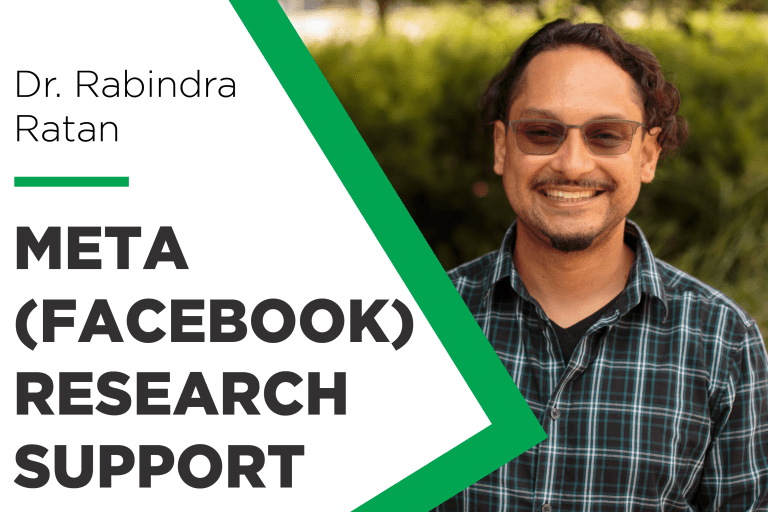Dr. Rabindra Ratan, received $75,000 from Meta (Facebook) to study inclusion and accessibility in Virtual Reality.
Under his direction, this funding will be used to support Dr. Ratan and his lab's research on the social and psychological effects of avatars, virtual reality, and other metaverse-related technologies, with a focus on improving prosocial outcomes in education, the workplace, and public contexts.
“This research project aims to improve workplace outcomes related to equity and inclusion within virtual meetings,” said Dr. Ratan. “We are looking into whether certain technological features in virtual meetings that relate to self-presentation, such as avatars, could be designed to mitigate negative self-focused attention.”
The lab's most prominent project focuses on issues related to equity and inclusion in virtual meeting platforms, such as virtual meeting fatigue, which Ratan's research suggests is more harmful to women compared to men as well as Asian compared to White participants (Ratan, Bailenson & Miller, 2021).
“For example, we know that women experience significantly more fatigue due to virtual meetings (sometimes called "Zoom fatigue") than men,” said Dr. Ratan. “This difference might partly be caused by gendered norms around self-presentation that lead to negative self-focused attention. In other words, seeing yourself for hours in Zoom meetings might increase your self-consciousness, which can be draining.”
These new funds will support complementary projects, such as a survey of workers examining what strategies women and people of color people might adopt to avoid stereotyping/toxicity and whether there are psychological costs (e.g., fatigue, negative self-focused attention) or benefits (e.g., well-being, productivity) associated with specific avatar customization orientations and strategies.
The funds have also been used to purchase 16 Quest 2 virtual reality headsets that Dr. Ratan uses with his undergrad students for his "Understanding Virtual Reality Experiences" course.
